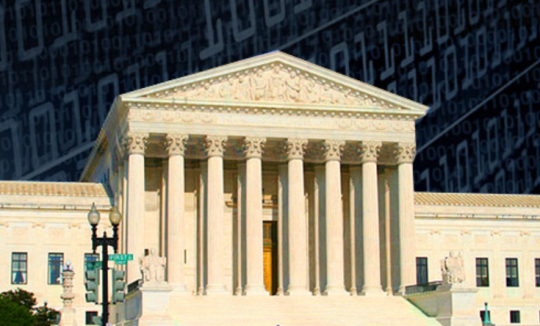
Two developments within the last two weeks could create
potential roadblocks for small- and medium-sized businesses (SMBs) within
retail, particularly those operating exclusively online:
- The repeal of net neutrality rules, which could create a multi-lane
Internet where content providers and retailers have to pay extra for
better service, faster load times, etc.; and - The U.S. Supreme Court ruling on sales tax collection, essentially
letting the states tax a company making sales to consumers even if they
don’t have a significant physical presence in the state.
The RTP team
discusses whether the two government decisions spell trouble for SMBs, particularly
as larger retailers continue to grow and consolidate. The editors also share
their thoughts on the potential impact on innovation if the marketplace becomes
too difficult for smaller companies to maneuver.
Debbie Hauss,
Editor-in-Chief: It’s a very complicated time for retailers, to say the
least. While they’re trying to compete with Amazon, create a better omnichannel presence and stay up-to-speed
on the latest new technology, they now have to be concerned about diminishing
profit from tax burdens and Internet challenges. I do think that the
brick-and-mortar retailers had a strong argument in asking that e-Commerce
retailers collect taxes, but it will put an additional burden on those
businesses. They’ll have to decide whether to eat a portion of the taxes or
raise prices to their consumers. And they’ll need to find an effective way to
communicate the changes to their consumer base. Net neutrality, on the other
hand, simply seems like an unfair advantage for larger companies. It just won’t
be acceptable to consumers to have to wait even a few extra seconds for a page
to load. So the smaller companies will need to pay up or suffer the losses.
Adam Blair, Executive
Editor: It’s becoming increasingly clear that the Trump administration,
along with the federal judiciary, is pro-business — as long as it’s BIG
business. The end of net neutrality, for example, could limit high
bandwidth and fast downloads only to those that can afford to pay for premium
services. (It’s ironic that this is occurring just as a generation is coming of
age that has never had to deal with the agony of dial-up doldrums.) Additionally,
two recent Supreme Court rulings spell trouble for retailers with limited
resources. The sales tax decision subjects e-Commerce
retailers to these taxes even if they don’t have a significant physical
presence within a jurisdiction. This will cost retailers not just money but an
even more valuable commodity: the time needed to manage a vastly more
complicated tax regimen. The American Express swipe fee decision means that
interchange rates are unlikely to come down any time soon, leaving small
retailers with the no-win choice of charging higher prices or refusing to
accept Amex as a payment method. The message to small retailers seems pretty
clear: Go Big, or Get Lost.
Glenn Taylor, Senior Editor:
While these government decisions don’t help SMBs, I believe that top innovators
always find themselves able to push through, despite the potential barriers
that may be thrown their way. Innovation is so consumer-driven at this point
that SMBs are given more incentive to think outside the box, particularly if
they have to collect more taxes. Retailers need to follow the consumer
regardless of how tough things get — people always talk about Amazon’s rise as
a death knell to everyone under the sun, yet many small retailers made a name
for themselves by innovating in an environment that doesn’t always favor them.
I was totally against the net neutrality repeal, but I do think that from an
e-Commerce perspective, there would be too much consumer and retailer backlash
alike for the ISPs to create priority lanes that impede the ability to make sales.
Bryan Wassel,
Associate Editor: The repeal of net neutrality and the ruling on sales tax
collection aren’t positive developments for SMBs, but they won’t be the end of
them either. Many consumers buy from small retailers because they like the
quality of the product or feel a strong connection with the brand. The
most loyal customers likely won’t be put off by paying a few percent more on
their order. As for net neutrality, it’s likely that the decision won’t be permanent:
a poll from the University of Maryland’s Program for Public Consultation found 83% of respondents opposed its repeal,
including 75% of Republicans.
Reinstating the practice would be an easy, popular fix for a future
administration, and ISPs aren’t likely to make any immediate moves for fear of
the potential backlash.






